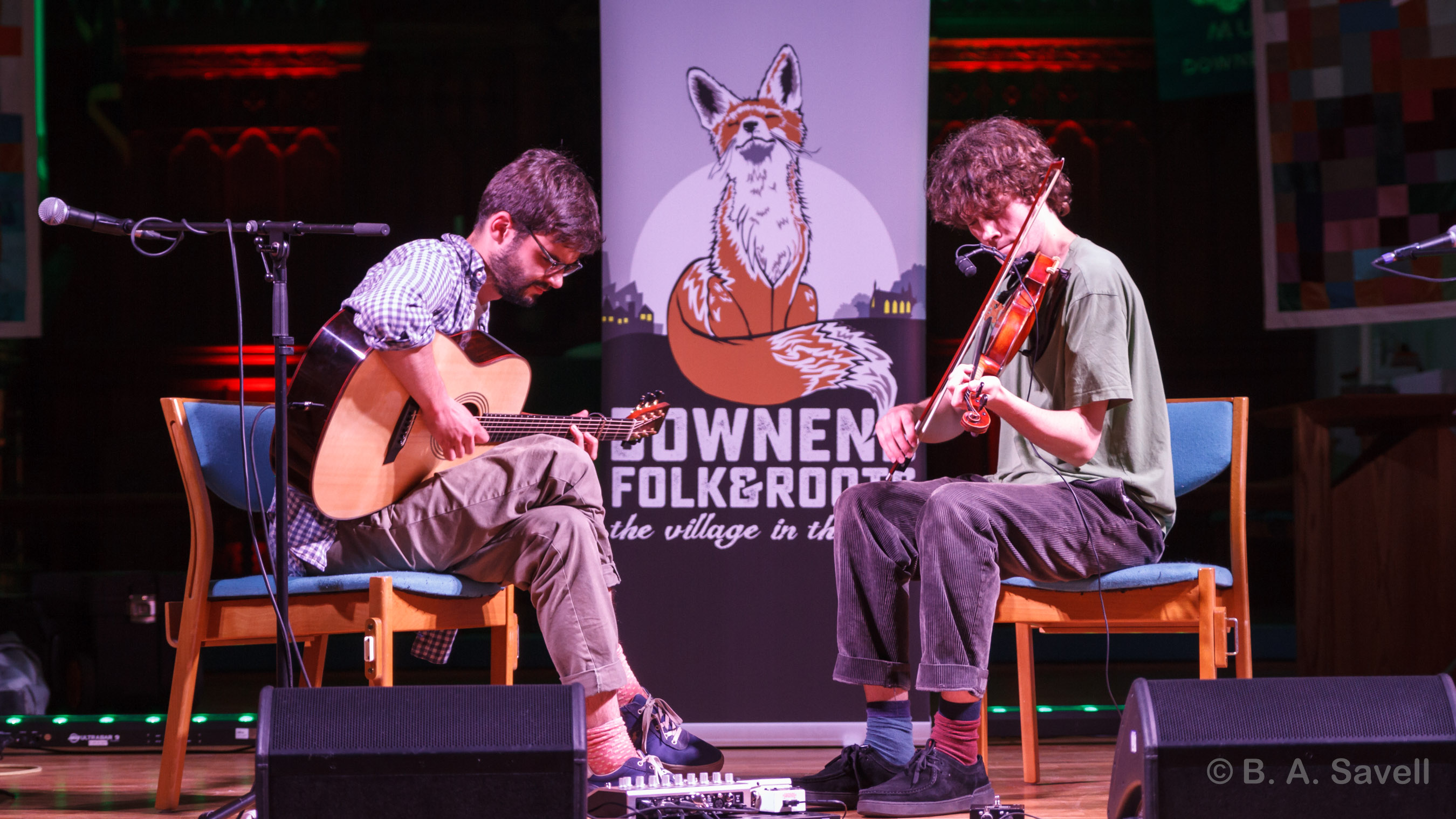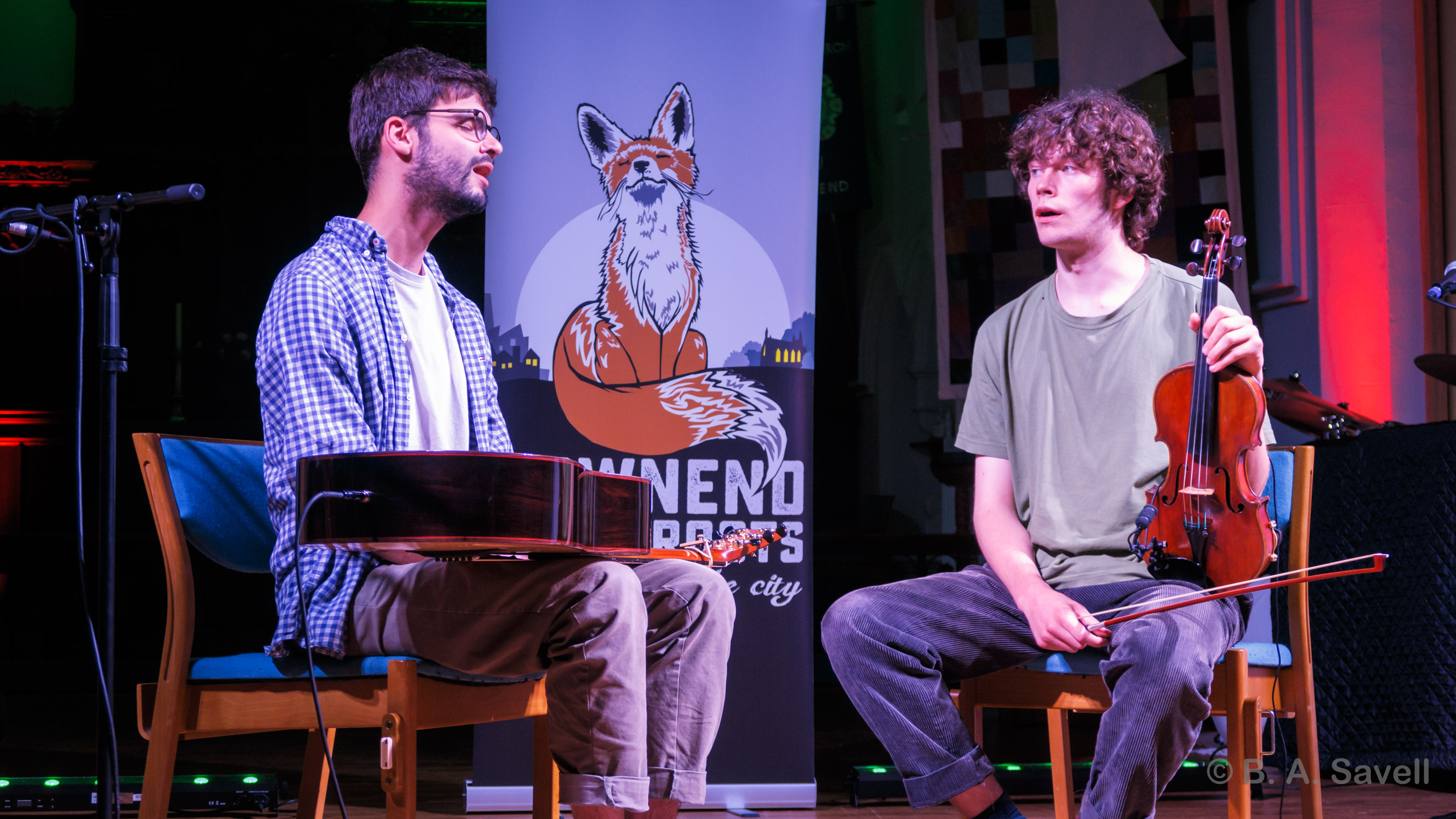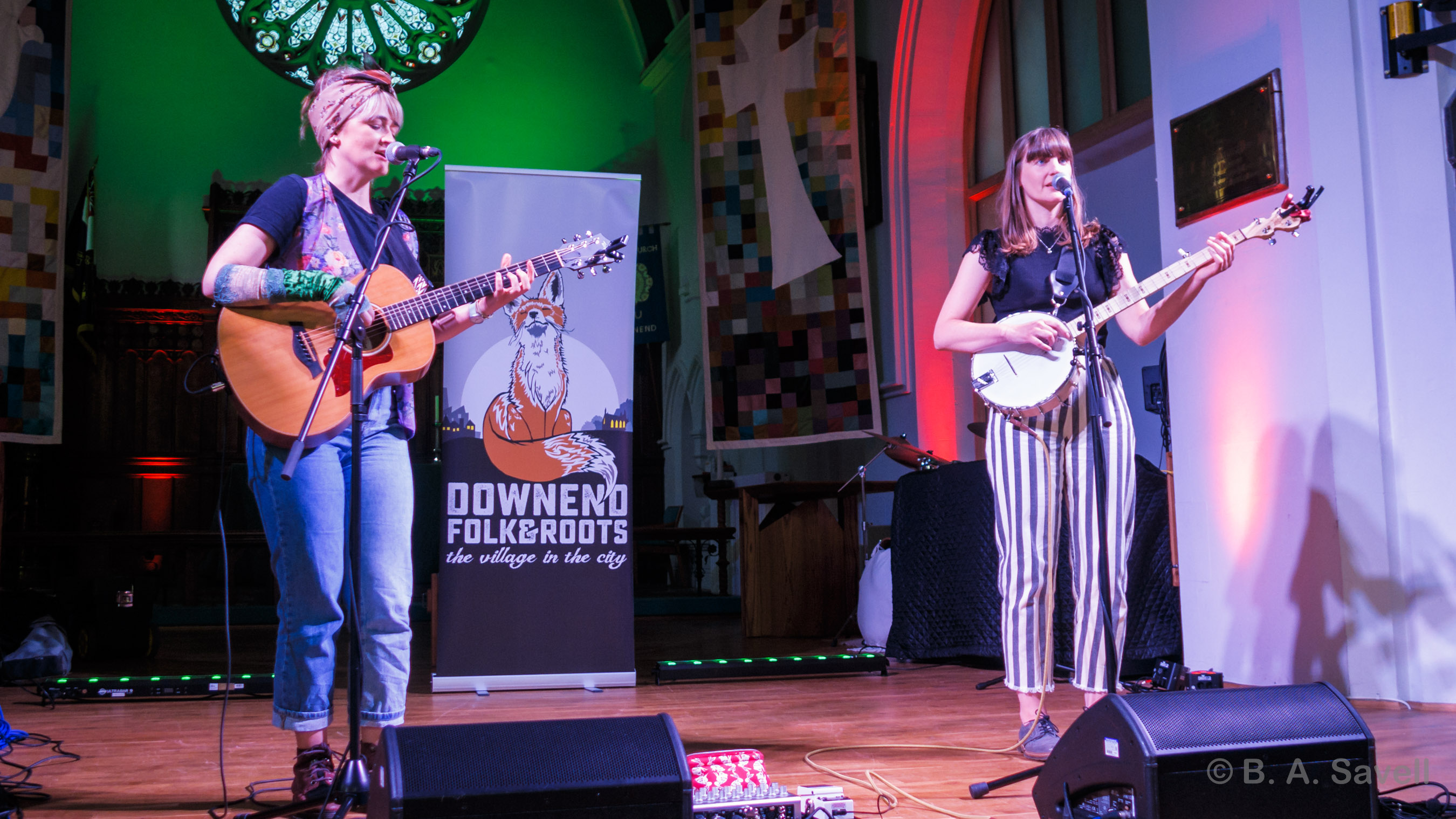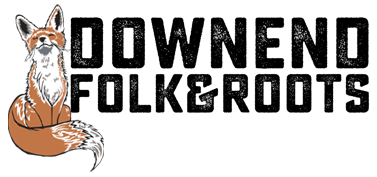There are flickerings, scratches and scritches echoing and haunting Christ Church this evening. As late July sunlight pours into the place, blinding those on stage, things half forgotten, less than half remembered, sit, patiently, and wait.
OWEN SPAFFORD & LOUIS CAMPBELL are young, their brilliant debut album just released, and are right at the forefront of folk's new instrumental wing, yet they magic up moments of strangely unsettling beauty. Beauty that seems much older, to reach back to a place of a perfect childhood viewed through a dusty, ancient stereoscope.

A stereoscope is an interesting thing. A Victorian contraption that allows you to see in 3D when two versions of the same image are placed side by side. Pleasingly, Spafford & Campbell fit neatly into this metaphor. They are, seemingly, two very different people. Campbell is confident and chatty, with a bone-dry wit and the ability to make his guitar glisten. He's been a part of Sam Sweeney's band and is, clearly, used to fashioning quicksilver from six strings. Spafford is quieter, shy and halting sometimes. There are moments when he seems to gently, hesitantly ease himself into tunes but then takes flight with alarming grace. Sometimes it feels as though the two of them are playing different tunes until you realise that they're giving you different perspectives of the same, making everything 3D.
Very often it's Campbell's guitar that drives the tunes along. He plucks, insistently, at a single note before providing a propulsive rhythm that unveils a landscape of rolling hills, of lush Englishness. Above him circles Spafford's violin, caught by the currents. They create time-lapse music, the shifting of perceptions as clouds scud across fields, changing texture and tone. It's as timeless, as intoxicating as nature itself.

Taken from the debut album, You, Golden, Adson's is an instrumental inspired by a walk in Leeds. Spafford grew up there and there are, undoubtedly, nostalgic shimmers sprinkled through the tune. It starts sleepily, a childish fist rubbing away morning fuzziness, before guitar and violin become bolder, louder. Like the breeze wafting snatches of tunes towards you, there are tiny fragments of nursery rhyme and the wyrd themes of kids shows from the 70s, they flutter and then dart away before you can put your finger on them. It's as though there's an old music box tinkling away behind a boarded-up door. Slightly spooky, oddly comforting.
On Lullabies, Campbell cradles his guitar as though it were injured, coaxing melodies, cooing to it softly. Spafford scratches on his violin, creating radio interference or the crackle of a 78. The space around the two means that this is no Folk Horror nightmare, more an echo of a friendly past. When Campbell ends with an unaccompanied version of the traditional counting song, I'll Have One Man To Mow Me Down My Meadow, the nostalgic burst is complete. If this sounds a bit naff, it is anything but. It's quite moving really.
For the encore, Pop Goes The Weasel seems to peek from the dizzying interplay between the two instruments. It's playful and is a reminder that all of these great things we listen to have their roots way back in our past. Louis Campbell & Owen Spafford nod to those memories that sit quietly in the shadows, they connect the ground with the air and make memories solid.

In a similar way, MINNIE BIRCH weaves a world around us too. She describes herself as "quite a mellow support act, more a gentle caress" and, along with Kathy Pilkinton on banjo, she is exactly that. Her voice is high with an indie-folk vulnerability at its edges and infuses the start of the evening with a pleasantly hazy atmosphere, like blowing dust from old photos. A handful of her own songs have you reaching for the Vashti Bunyan/Karen Dalton/Linda Perhacs comparisons. Not that her voice sounds like any of these but the feeling's the same. A version of her own Up and Down, taken from the Company of Players Shakespeare Songs album, proves that she is a clever and gifted songwriter too.
Flickerings, scratches and echos may have haunted Christ Church Downend this evening, but it was the best kind of haunting, one that brought back the best of times.
Words: Gavin McNamara
Photos: Barry Savell
